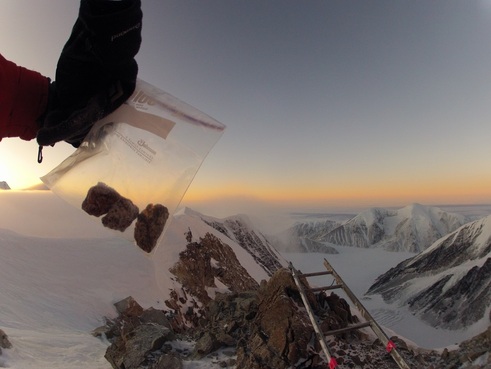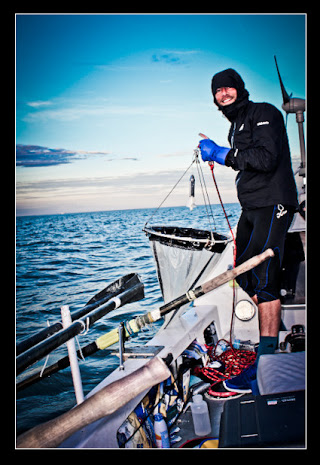Sometimes adventure doesn’t work out the way you plan. The weather might turn on you before the summit of a mountain, the path might be blocked with no way around, or a giant storm serge might keep you from taking your original course. All adventurers know there is a chance they might not accomplish their goals, and that chance gets bigger the more difficult or untried the expedition becomes. There has to be more of a purpose to adventure than just succeeding, otherwise people would stop doing it. Over the past year ASC adventurers have reported that the science component gave their expeditions meaning when plans changed.
Here are a few stories of expeditions that were saved by science.
Here are a few stories of expeditions that were saved by science.
Sune Tamm and his team of mountaineers attempted to climb the Waddington Circuit in Brittish Colombia, but had to turn back due to unstable snow conditions. The team was exhausted and a little disappointed, but when they discovered their first ice worm for the ASC ice worm study on the way back down, they felt a new sense of purpose:
“Our whole team hadn’t slept for over 2 hrs a night for almost a week moving camp every night up and down the Bravo Glacier on Waddington. But as we stumbled out of the icefall and back onto the Tiedemann at 0730 to find our first worm we all jumped for joy and lost ourselves in searching for, and documenting ice worm encounters.” Sune Tamm
“Our whole team hadn’t slept for over 2 hrs a night for almost a week moving camp every night up and down the Bravo Glacier on Waddington. But as we stumbled out of the icefall and back onto the Tiedemann at 0730 to find our first worm we all jumped for joy and lost ourselves in searching for, and documenting ice worm encounters.” Sune Tamm
Lonnie Dupre attempted to summit Denali in the winter last year. He nearly lost a glove and was stuck in a snow cave for days before he had to call the expedition. However, he was able to collect rock samples for the ASC Microbe Sampling Project and bring them back to our researcher. Lonnie is planning to attempt the winter ascent again and collect more samples along the way.
Neal Mulluer and his team, Arctic Row, set out to be the first unsupported team to row across the Arctic Ocean. Unexpected hurricane force winds and weather conditions changed the course of the trip, but the science component and plankton samples the team took everyday gave them another purpose to be out on the sea.
“For us it gave us something to think about in addition to accomplishing our goal. Science became a central component of our journey; a daily activity that reminded us of our a higher purpose to all that rowing.”
“For us it gave us something to think about in addition to accomplishing our goal. Science became a central component of our journey; a daily activity that reminded us of our a higher purpose to all that rowing.”


